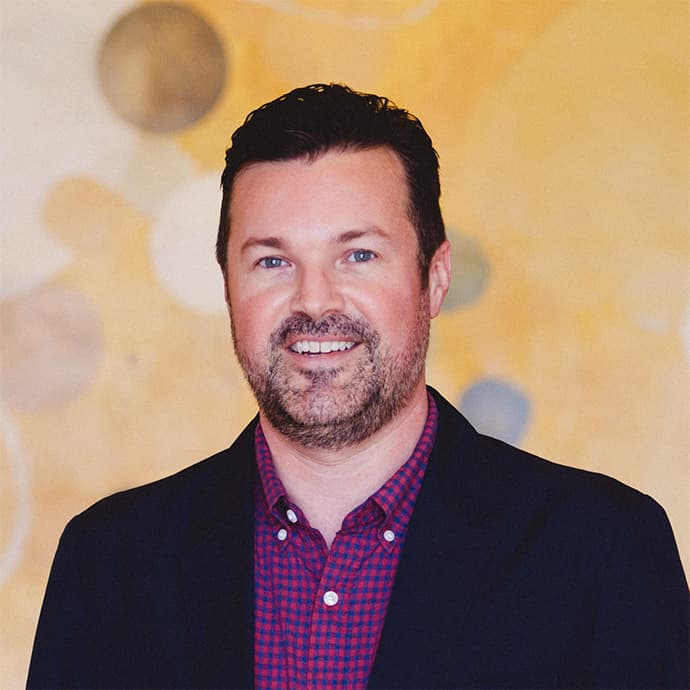LSD Addiction: Signs, Symptoms, Effects, and Treatment



Marisa worked as a Behavioral Health Worker for at-risk youth in the school setting and as a Mental Health Worker for adolescents in a partial hospitalization program, where she worked closely with therapists to implement individualized treatment plans and prevention programs, as well as intervening when problematic behaviors arose.

Dr. Scot Thomas received his medical degree from the University of California, San Diego School of Medicine. During his medical studies, Dr. Thomas saw firsthand the multitude of lives impacted by struggles with substance abuse and addiction, motivating him to seek a clinical psychiatry preceptorship at the San Diego VA Hospital’s Inpatient Alcohol and Drug Treatment Program.




Marisa worked as a Behavioral Health Worker for at-risk youth in the school setting and as a Mental Health Worker for adolescents in a partial hospitalization program, where she worked closely with therapists to implement individualized treatment plans and prevention programs, as well as intervening when problematic behaviors arose.

Dr. Scot Thomas received his medical degree from the University of California, San Diego School of Medicine. During his medical studies, Dr. Thomas saw firsthand the multitude of lives impacted by struggles with substance abuse and addiction, motivating him to seek a clinical psychiatry preceptorship at the San Diego VA Hospital’s Inpatient Alcohol and Drug Treatment Program.
Many people wonder, is acid addictive? While LSD isn't considered addictive, users can develop tolerance and psychological dependency on it, which may require professional treatment.
Professional treatment programs can help people stop using LSD and other drugs. The most appropriate form of treatment depends on how much the person is using the drug, whether they use other drugs, and whether they suffer from mental health conditions.
Is LSD Addictive?
LSD is technically not an addictive drug. Most truly addictive drugs, over time, give rise to compulsive drug-seeking behaviors. LSD rarely does. LSD use also does not result in a physical craving for more LSD. However, people who use LSD often rapidly develop tolerance, meaning that each time they use it, they must take more to experience the initially felt effects.1
LSD is the common name for lysergic acid diethylamide, a powerful chemical that is also commonly known as “acid.” LSD causes a person to experience alterations in his or her perception of reality, including auditory and visual hallucinations. These effects can last up to 12 hours.1
Even though LSD is not physically addictive, it can be psychologically addictive. Those who enjoy LSD’s feelings and sensory changes may want to keep using LSD to experience these sensations over and over.
In addition, many LSD users are poly-substance abusers, meaning that they concurrently use more than one drug. One study found that marijuana and alcohol were the most commonly used drugs with LSD.2
How To Tell If You Or a Loved One Is Addicted To LSD
Many who chronically struggle with substance addiction will continue to compulsively use drugs even when that use leads to negative consequences. It is thought that distinct changes in brain circuitry may occur as a result of persistent drug abuse, which may diminish the ability of an addicted person to resist his or her compulsion for continued drug use.
Can you get addicted to acid? While it is possible to develop a dependence on the drug, medical professionals do not use the term “acid addict” to describe those who are struggling. Instead, the clinical term for LSD abuse is called hallucinogen use disorder.3
- You take more LSD than you planned to take.
- You have had difficulty controlling your use of the substance.
- You spend a good deal of your time obtaining, using and recovering from the use of LSD.
- You crave the substance.
- You fail to carry out major life roles in areas such as work, school or home because of your drug use.
- You continue to use LSD despite negative consequences from use.
- You give up or reduce other activities that were previously important to you, such as work, friendships and other activities.
- You use LSD under dangerous conditions, such as when driving.
- You continue to use LSD even though it causes, or makes worse, a psychological or physical issue.
- You have built a tolerance to the drug, so that you have to take increasingly higher doses to get the same effect as before.
- You experience physical or psychological withdrawal symptoms when you stop using.
Hallucinogen use disorder is usually diagnosed in people younger than 30 years old. Encouragingly, however, the rates of recovery are high.3
Getting Treatment And Starting Recovery For LSD Abuse
Numerous treatment options are available for LSD dependency.
- Inpatient rehab centers. Inpatient treatment may be necessary for LSD dependency. Some temporary psychiatric issues, such as the potential to experience acute panic with LSD use (i.e., a “bad trip”), may respond well to supportive management in the emergency room. However, if you compulsively use LSD, inpatient or residential treatment can be helpful, especially if you concurrently struggle with dual diagnosis issues such as mood disorders, anxiety or psychosis.
- Outpatient rehab centers. Outpatient treatment can also be effective for LSD dependency. Outpatient treatment programs typically meet 1 to 3 times a week and frequently use some combination of group and/or individual counseling sessions. In addition, programs often use contingency management, which gives you rewards for staying abstinent from substances. 6
- Twelve-step programs. Meetings are free and widely available. Groups such as Alcoholics Anonymous (AA) and Narcotics Anonymous (NA) provide a supportive environment to help you maintain abstinence from using substances such as LSD. Twelve-step program participation is also a vital part of many aftercare regimens following other forms of treatment.
- Group counseling. Group therapy gives you peer support to aid in the recovery process. Groups also keep you from feeling isolated from others. Further, a group places you among others at various stages of recovery, but with similar experiences – allowing you to identify positive role models and benefit from the wisdom of those people.5
- Individual counseling. One-on-one therapy may involve cognitive behavioral therapy (CBT) approaches to addiction treatment, helping you to work on changing the behavioral patterns that trigger your use of substances, such as LSD.
Choosing a Program
Sometimes, it can be hard to decide which treatment is right for you. Selecting the right type of treatment will depend on:
- How severe your use of LSD or other drugs has become.
- How many times you have received some form of treatment for addiction.
- How easy it will be for you or a your loved one to take time away from the responsibilities of work and family.
- Your insurance or ability to pay out-of-pocket.
What Happens When I Get to Rehab?
- Intake: Prior to beginning treatment, you are evaluated for the severity of your substance abuse issues and any mental health issues that you may have. The evaluation helps to determine if you need to be in a short-term detox program, if you need longer-term treatment or if you can be treated on an outpatient basis.
- Detox: Detox program lengths will vary, but they will likely last at least a few days. The focus is on ensuring that you are medically stable, and you are typically treated with some form of medication. Some detox programs also provide some individual and/or group counseling. Detox alone does not address the cause of your abuse or any underlying mental health problems.
- Group and individual counseling: Inpatient and outpatient treatment programs provide intensive group and individual counseling in a structured environment. The counseling is meant to help you discover why you began using drugs, to teach relapse prevention skills, and to build a solid program of recovery for you to follow throughout treatment and beyond.
- Aftercare: Many treatment programs will work with you on planning for and scheduling various methods of follow-up care when you leave the program. Aftercare activities can include 12-step programs, sober living communities and ongoing therapy.
Short-Term Effects Of Acid Addiction
An LSD experience, also known as a “trip,” can lead to a variety of short-term effects. Most users feel the effects of LSD within about 30 minutes of taking the drug. Trips can last up to 12 hours.7
Time may seem to slow down or speed up, and users may see and hear things that aren’t really there. Often, users will say that they hear color or that they can see sounds – an experience known as synesthesia.7
Taking LSD results in least some of the following effects:7
- Increased heart rate
- Dry mouth
- Blurred vision
- Nausea
- Loss of appetite
- Sleep disturbances
- Lack of physical coordination
- Raised body temperature
- Sweating
Good Trips vs. Bad Trips
Pleasant experiences with LSD are called “good trips,” and some people report that the distortions of time and sensation feel good. They may even state that the trip was a religious or mystical experience. However, at times, a person who has taken LSD will have a “bad trip” and have frightening hallucinations, feel that they do not really exist or report feeling panicked and anxious for the experience to end.
It’s difficult to predict what kind of experience a person will have on LSD, and repeated use increases the chance that someone will have a bad trip.
Long-Term Effects Of LSD Addiction
How addictive is LSD? A person who uses LSD regularly will quickly develop tolerance – even after just a few days of daily repeat use – and it will take more and more LSD for them to achieve the desired effects.
Beyond developing tolerance, some who use LSD over a period of time may experience a few serious mental health consequences.
- Drug-induced psychosis. When a person takes LSD, it can cause ongoing distortions in the person’s perception of reality. These distortions can take place even when the person has not taken LSD recently. These can include difficulty recognizing reality, thinking rationally or interacting with other people.
- Hallucinogen persisting perceptual disorder. Some users of LSD report “flashbacks” or sudden disturbances in visual perception or other perceptions of the environment, even when they have not taken LSD for some time. These flashbacks can range from mild, such as seeing halos or trails attached to moving objects, to more intense experiences lasting for longer periods of time.7
If you’re noticing signs of LSD misuse in yourself or someone you care about, you don’t have to figure it out alone. Addiction is treatable, and a life of freedom is possible. Connect with drug and alcohol treatment centers that specialize in your specific needs, from holistic care to medication-assisted treatment. Don’t wait another day to get help; find a recovery program that works for you.
FAQs
-
National Institute on Drug Abuse. (2016). Hallucinogens. https://www.drugabuse.gov/publications/drugfacts/hallucinogens
-
Center for Substance Abuse Treatment. (2006). Detoxification and Substance Abuse Treatment. https://www.ncbi.nlm.nih.gov/books/NBK64116/
-
Center for Substance Abuse Treatment. (2005). Substance Abuse Treatment: Group Therapy. https://www.ncbi.nlm.nih.gov/books/NBK64220/?term=treatment%20improvement%20protocol%2041%20groups%20and%20substance%20abuse
-
Substance Abuse and Mental Health Services Administration. (2015). Treatments for substance use disorders. https://www.samhsa.gov/find-help/treatment
-
Center for Substance Abuse Research. University of Maryland. (2013). LSD. http://www.cesar.umd.edu/cesar/drugs/lsd.asp
Our Promise
How Is Recovery.com Different?
We believe everyone deserves access to accurate, unbiased information about mental health and recovery. That’s why we have a comprehensive set of treatment providers and don't charge for inclusion. Any center that meets our criteria can list for free. We do not and have never accepted fees for referring someone to a particular center. Providers who advertise with us must be verified by our Research Team and we clearly mark their status as advertisers.
Our goal is to help you choose the best path for your recovery. That begins with information you can trust.








